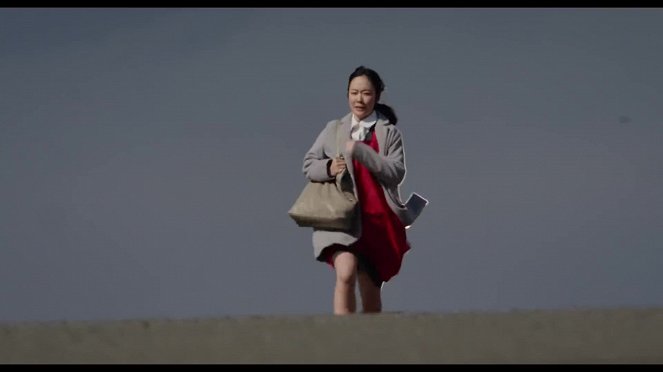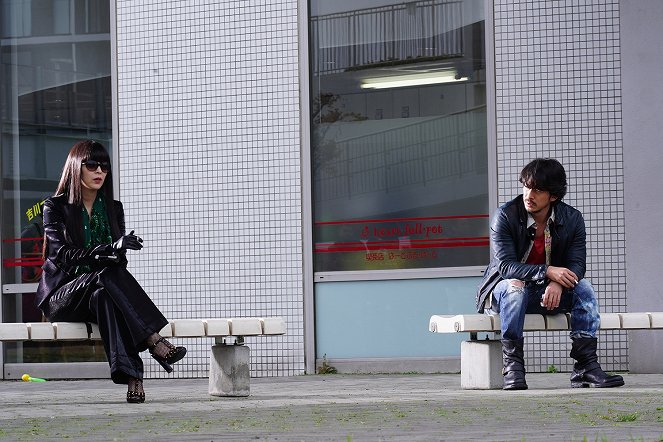Réalisation:
Tetsuya NakashimaActeurs·trices:
岡田准一, 小松菜奈, 黒木華, Satoshi Tsumabuki, Takako Matsu, Miho Ninagawa, Yu Takahashi, Taiga, 青木崇高, 矢作マサル, Ami, Saya KawamuraRésumés(1)
Hideki (Satoshi Tsumabuki) and Kana (Haru Kuroki) are the embodiment of happiness. Recently married, the Taharas are now waiting for their first-born. They're glowing! When a mysterious guest at work talks to his colleague about a certain Chisa, Hideki is dumbstruck. Chisa is the name he and Kana had planned to give their daughter, a decision they had kept to themselves. What's worst, the friend who had spoken to the stranger suddenly dies under horrid circumstances. Two years later, convinced that a supernatural force is threatening his family, Hideki reaches out to Nozaki (Junichi Okada), a writer specializing in the occult, and his clairvoyant girlfriend Makoto (Nana Komatsu) to rid himself of the entity that is casting a shadow on his happiness, which, as it turns out, may not be as genuine as it seems. (Fantasia International Film Festival)
(plus)Vidéo (6)
Critiques (2)
Un drame-horreur étonnamment complexe (à propos d'un jeune couple sur le point d'avoir un enfant), qui interprète les démons effrayants comme des traumatismes de l'enfance et de l'éducation des parents, et comme quelque chose que nous inventons pour justifier nos propres erreurs. En plus de cela, il contient un démon réel qui déchiquète les gens en morceaux et en fait des fontaines de sang. Dans cette histoire complexe, dont les principaux héros meurent progressivement et où les héros secondaires prennent le relais, on saute souvent dans le temps et entre plusieurs trames narratives (ainsi que dans des passages de rêve, des hallucinations et des visions du monde des morts), en mettant l'accent sur les caractères des personnages et les raisons psychologiques de leurs actions. Le point culminant est une scène fantastique d'exorcisme, avec la participation d'une douzaine d'exorcistes, d'une douzaine de moines et d'une demi-douzaine de danseuses. Cependant, le film pâtit de sa sur combinaison, d'un nombre trop élevé de personnages et de thèmes, ainsi que d'un style narratif éclaté qui ne permet pas une assimilation suffisante du contenu affiché.
()
I found it more of a critique of society than a horror film. Sure, it's got its antagonist, it's got its deaths, it's got its suspense and fear, it's got amazing imagery, it's got great cinematography, but underneath it all it just seems to be beating the drum of social criticism along the lines of actually raising a child vs. look how well we're raising our family/ how great our family is doing. It struck me that the author is basically saying, and literally showing, that all posers and internally corrupt or empty people need to be gotten rid of. Though of course through the characters he is saying that the poser may not mean it, that they can't "find fulfillment". It's simply a film that has several layers and is also divided into three parts. It has so much it wants to say that it doesn't have proper space to do so, despite its relatively long running time. It's a Nakashima that has accumulated a lot of ideas from Confessions that he wanted to vent. But he vented them quite impressively. As I've written before, the cinematography is great and takes an ordinary horror film somewhere further, the final exorcism in particular is very impressive and I like how there's a mix of Shinto and Buddhist rituals along with Korean shamanism. There are just a number of perspectives to explore in this film and it's definitely interesting. It works as a horror movie, as social critique, and as a visually evocative film. But it's clear to me that getting it all together is not for everyone.
()



Annonces